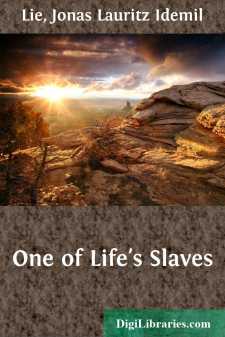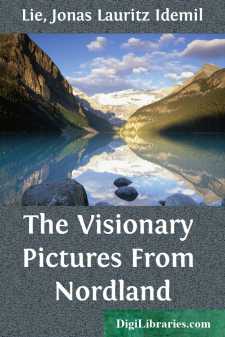Categories
- Antiques & Collectibles 13
- Architecture 36
- Art 48
- Bibles 22
- Biography & Autobiography 813
- Body, Mind & Spirit 142
- Business & Economics 28
- Children's Books 17
- Children's Fiction 14
- Computers 4
- Cooking 94
- Crafts & Hobbies 4
- Drama 346
- Education 46
- Family & Relationships 57
- Fiction 11829
- Games 19
- Gardening 17
- Health & Fitness 34
- History 1377
- House & Home 1
- Humor 147
- Juvenile Fiction 1873
- Juvenile Nonfiction 202
- Language Arts & Disciplines 88
- Law 16
- Literary Collections 686
- Literary Criticism 179
- Mathematics 13
- Medical 41
- Music 40
- Nature 179
- Non-Classifiable 1768
- Performing Arts 7
- Periodicals 1453
- Philosophy 64
- Photography 2
- Poetry 896
- Political Science 203
- Psychology 42
- Reference 154
- Religion 513
- Science 126
- Self-Help 84
- Social Science 81
- Sports & Recreation 34
- Study Aids 3
- Technology & Engineering 59
- Transportation 23
- Travel 463
- True Crime 29
Jonas Lauritz Idemil Lie
Jonas Lauritz Idemil Lie (1833–1908) was a Norwegian writer known for his novels that depicted the struggles and everyday life of people in coastal Norway. He is considered one of the "Four Greats" of 19th-century Norwegian literature, alongside Henrik Ibsen, Bjørnstjerne Bjørnson, and Alexander Kielland. Some of his notable works include "The Visionary," which explores the mysterious forces of nature and the sea, and "The Family at Gilje," which focuses on the dynamics within a Norwegian family. Lie's writing often blends realism with elements of folklore and psychological insight.
Author's Books:
Sort by:
CHAPTER I. On the stern, pine-clad southern coast of Norway, off the picturesquely-situated town of Arendal, stand planted far out into the sea the white walls of the Great and Little Torungen Lighthouses, each on its bare rock-island of corresponding name, the lesser of which seems, as you sail past, to have only just room for the lighthouse and the attendant's residence by the side. It is a wild...
more...
CHAPTER I NEGLECTED RESPONSIBILITIES "Like a prince in his cradle," you say, "with invisible fairies and the innocent peace of childhood over him!" What fairy stood by the cradle of Barbara's Nikolai it would be difficult to say. Out at the tinsmith's, in the little house with the cracked and broken window-panes in the outskirts of the town, there was often a run of visitors,...
more...
INTRODUCTION I know many people who have felt the same inclination that sometimes comes over me, to choose bad weather to go out in. They are generally men who have passed from a childhood lived in the open air of the country, to an occupation which entails much sitting still, and for whom the room sometimes seems to become too narrow and confined—or else they are poets. Their recollection and...
more...




